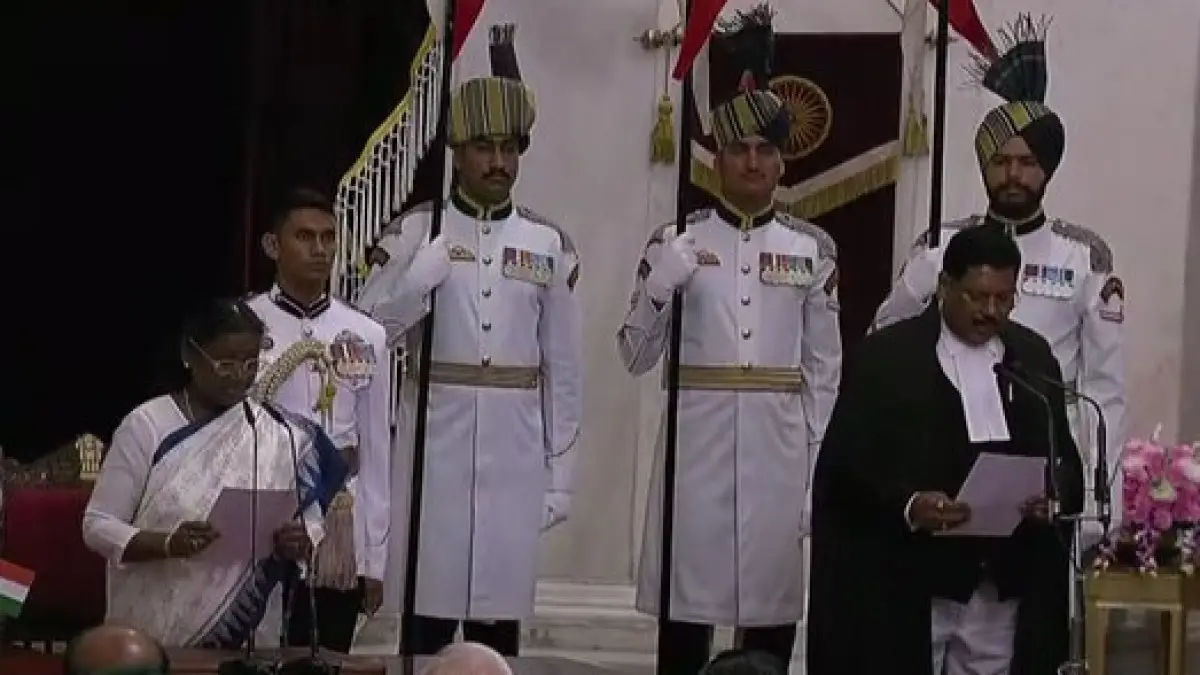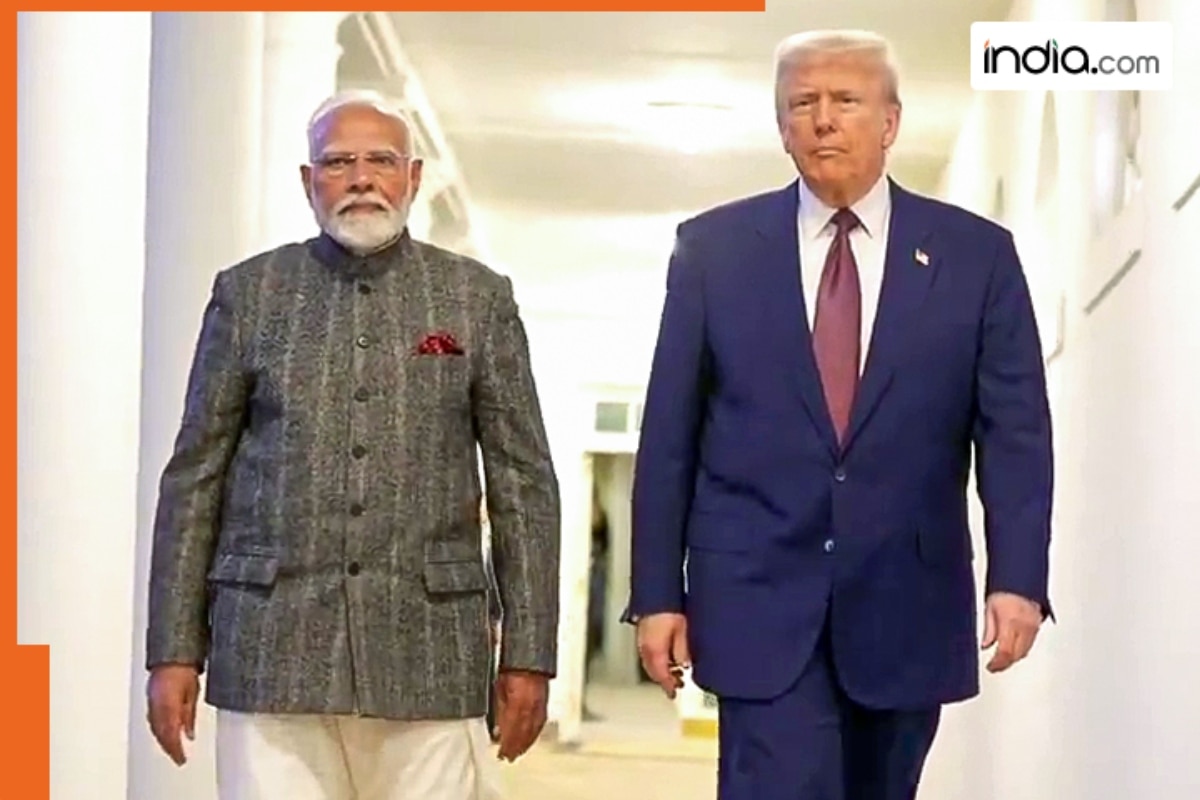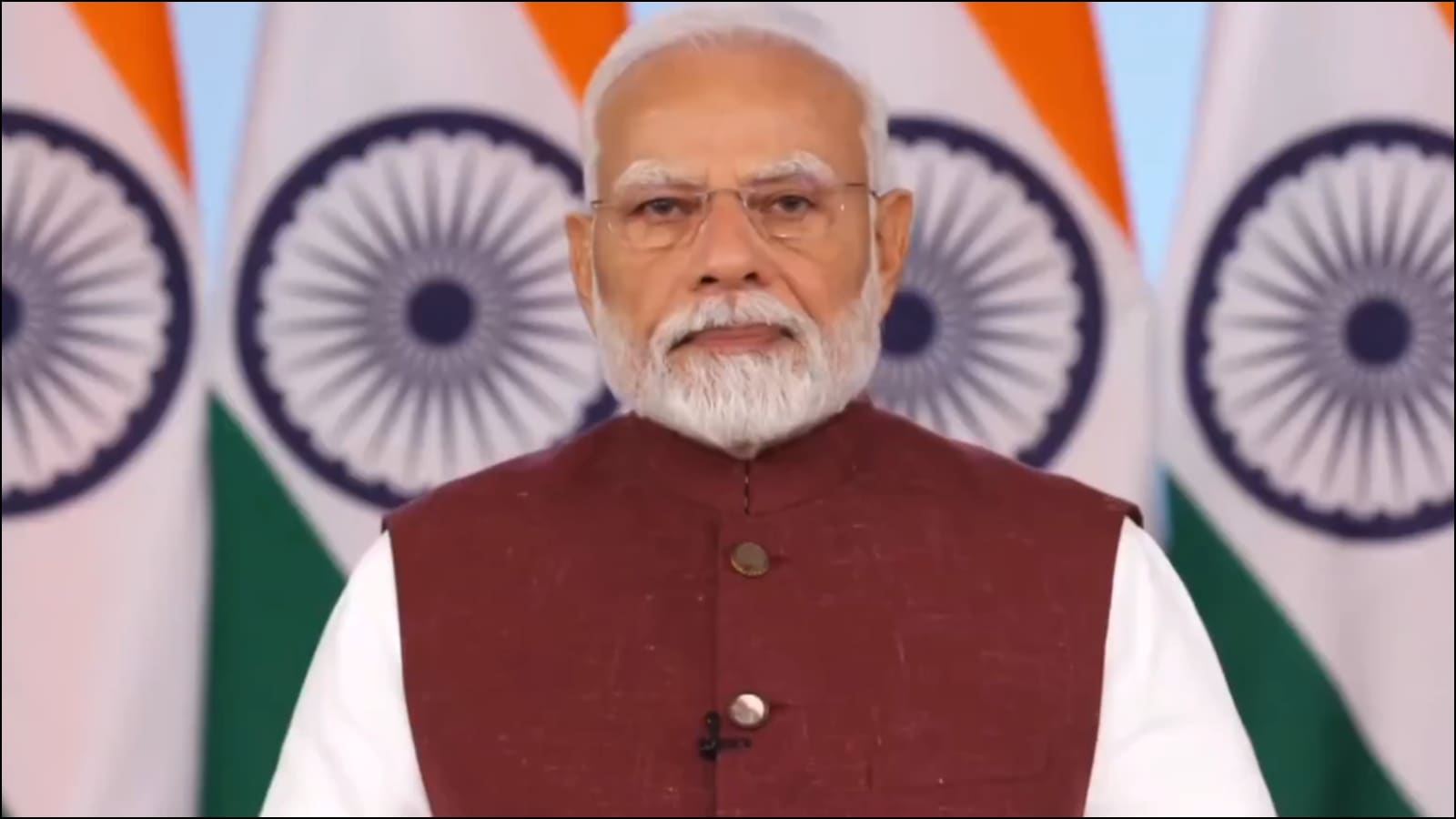Justice Gavai Takes Oath as President Administers Ceremony
Justice Bhushan Ramkrishna Gavai, who has been part of several benches that delivered landmark rulings, including upholding the Centre's decision to abrogate provisions of Article 370 bestowing special status to Jammu and Kashmir, was sworn in as the 52nd Chief Justice of India on Wednesday.
The 64-year-old was administered the oath by President Droupadi Murmu at a brief ceremony at the Ganatantra Mandap in Rashtrapati Bhavan. He succeeds Justice Sanjiv Khanna, who demitted office on Tuesday upon attaining the age of 65 years.
Justice Gavai, who was elevated as a judge of the Supreme Court on May 24, 2019, will have a tenure of over six months and will demit office on November 23. He took the oath of affirmation in Hindi and sought blessings from his mother Kamal Tai Gavai by touching her feet.
Union ministers, former judges, and other dignitaries attended the swearing-in ceremony, including Vice President Jagdeep Dhankhar, Prime Minister Narendra Modi, and former president Ram Nath Kovind.
Career Background and Legal Achievements
Born on November 24, 1960, in Amravati, Justice Gavai was elevated as an additional judge of the Bombay High Court in 2003 and became a permanent judge in 2005. He has been part of several Constitution benches delivering path-breaking verdicts.
Justice Gavai has participated in various landmark constitutional rulings, including upholding decisions on Article 370, electoral bonds scheme, demonetization, and reservation policies among others. He has also laid down pan-India guidelines for property demolition and protection of forests and wildlife.
Legal Background and Appointment Process
Justice Gavai joined the bar in 1985 and served as a standing counsel for various municipal corporations and universities. He held positions as government pleader and public prosecutor, showcasing a strong legal background.
According to the memorandum of procedure guiding appointment and elevation of judges, the senior-most judge of the apex court is considered fit for the office of the CJI. The views of the outgoing head of the judiciary are also sought in the appointment process.













